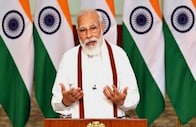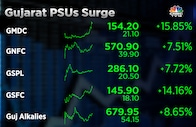In an appeal matter of M/s. Saraf Exports vs. Commissioner of Income Tax in March this year, the Supreme Court put its foot down on the tendency to squeeze more out of tax incentive schemes. The Apex Court ruled that profit from DEPB (Duty Entitlement Pass Book) and the Duty Drawback claims cannot be said to be an income “derived from the industrial undertaking” so as to qualify for deduction under section 80-IB. S Murlidharan, a Chartered Accountant and our tax columnist, analyses this case along with another one in the first part of a weekly series titled Legal Digest.
Section 80-IB of the Income tax Act, 1961 allows tax holiday by way of deduction from one’s Gross Total Income, profits derived from specified activities in order to goad investments in desirable activities. In M/s. Saraf Exports vs. Commissioner of Income Tax, Jaipur-III 2023 LiveLaw (SC) 299, the Supreme Court put its foot down on the tendency to squeeze more out of this tax incentive.
The Apex Court ruled that profit from DEPB (Duty Entitlement Pass Book) and the Duty Drawback claims cannot be said to be an income “derived from the industrial undertaking” so as to qualify for deduction under section 80-IB. While interpreting an incentive provision, a strict interpretation has to be made whether the income included in the profit and loss account indeed arose from the chosen activity in respect of which the Parliament has deemed it fit to show consideration.
Profit from wooden handicraft items manufactured and exported by the appellant alone qualified for the tax holiday and not other extraneous or ancillary incomes. To wit, dividend or interest income earned by the assessee are investment incomes and not profits derived from industrial undertaking.
A fine judgement indeed
In fact, this is in a way a reiteration because the SC has been steadfast in such a strict interpretation in a catena of earlier cases. It is not only in incentive matters the SC has taken such a pragmatic stand but also in penalty matters. Thus, in Excel Crop Care Ltd v. Competition Commission of India and Others dated May 8, 2017, the SC ruled that when CCI imposed hefty penalty with reference to turnover, the turnover should be ‘relevant’ turnover in relation to which alone there is a finding of anti-competitive practices and not the ‘total turnover’ in case of organisations engaged in multiple activities. The bottom line is be it incentive or penalty there should not be overreach by the assessee and the government respectively.
Alas, if only this leitmotif and yardstick had been extended to revenue share as well. It is well known that the Telcos in India were victims of the DOT overreach when pursuant to its 2G policy of 1999, it put its shovel into all sorts of income including dividend, rent and interest whereas in all fairness, the DOT ought to have confined its claim of a sliver of telecom revenue alone. The SC curiously put the onus on the Telcos for signing on the dotted line instead of pulling up the DOT for its overreach. That has in fact been the big trouble for many of our Telcos including Vodafone Idea.
Input tax credit manipulation won’t be tolerated
Input tax credit (ITC) is central to any Value Added Tax (VAT) scheme including GST. Issue of proving the genuineness of the purchase transaction to the adjudicating officer especially with regards to the movement and receipt of goods has been subject of intense debate as much in professional circles as in the adjudicating corridors of power. Interpretation of provisions of section 16 of GST law which lists down the conditions for availment of credit has been at the centre of many inquiries leading to arrests, freezing of bank accounts and properties.
The Supreme Court in its order dated 13.03.2023 in the case of the State of Karnataka Versus Ecom Gill Coffee Trading Private Limited (Civil Appeal No. 230 of 2023) was seized of this matter albeit under the Karnataka VAT law in vogue at the relevant point of time. That the Apex Court has put the onus on the purchaser to adduce proofs as to the genuineness of the purchase transaction is the sum and substance of the judgement which is bound to reverberate in the GST circles as well. There is a temptation to book fictitious purchases so as to avail of ITC and equally the anxiety on the part of the authorities to foil such bids since if left unchecked the deceit would impact the income tax assessment as well.
— The author, S Murlidharan, is a CA by qualification, and writes on economic issues, fiscal and commercial laws. The views expressed are personal.
Read his previous articles here
(Edited by : C H Unnikrishnan)
First Published: Apr 21, 2023 11:08 AM IST
Check out our in-depth Market Coverage, Business News & get real-time Stock Market Updates on CNBC-TV18. Also, Watch our channels CNBC-TV18, CNBC Awaaz and CNBC Bajar Live on-the-go!







